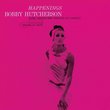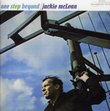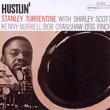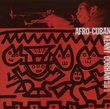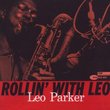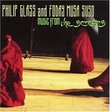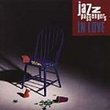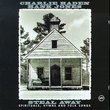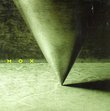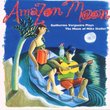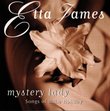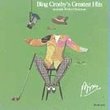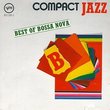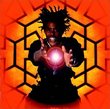| All Artists: Leo Parker Title: Let Me Tell You Bout It Members Wishing: 1 Total Copies: 0 Label: Blue Note Records Original Release Date: 1/1/1961 Re-Release Date: 9/13/2005 Album Type: Original recording remastered Genres: Blues, Jazz, Pop Styles: Jump Blues, Bebop Number of Discs: 1 SwapaCD Credits: 1 UPC: 094631149023 |
Search - Leo Parker :: Let Me Tell You Bout It
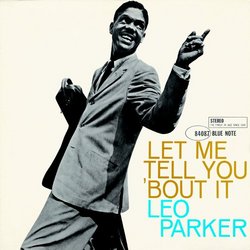 | Leo Parker Let Me Tell You Bout It Genres: Blues, Jazz, Pop
24bit Digitally Remastered Japanese Limited Edition in an LP-STYLE Slipcase. Includes Three Additional Tracks Not on the Original Release. |
Larger Image |
CD DetailsSynopsis
Album Details 24bit Digitally Remastered Japanese Limited Edition in an LP-STYLE Slipcase. Includes Three Additional Tracks Not on the Original Release. Similar CDs
Similarly Requested CDs
|
CD ReviewsNot quite essential...but still would recommend to a friend Stefan C. Kuhn | Santa Clara, CA United States | 05/27/2008 (4 out of 5 stars) "I'd love to give this album top marks...and of course do what I can to boost the sales of the greatest record label in history. But I can't here. Don't get me wrong--I enjoy this album, I really do. It swings, it pumps, it gives us what we need. But when you look at all those great sessions that went unreleased for decades, lying dormant in the vaults--sessions by Lee Morgan, Hank Mobley, Art Blakey--that leave us today scratching our heads wondering why they had to languish for so long, I can't help but wonder why this album was released given the lack of perfection, spit and polish we've come to expect from Lion et al. I suspect this album owes much to Ike Quebec for its existence; perhaps calling in a favor for an old pal that had fallen on hard times. But if this was intended to be the triumphant comeback hinted at in the liner notes it falls short of the mark. "Glad Lad"--opening the album you would expect this track to kick out all the stops and announce who's holding the floor this time round. The exciting fast tempo piece was written to do just that with its sock cymbal pace propulsion. A Leo Parker original, he carries his solos nicely if starting to falter near the close of his first; trumpeter John Burk moves in for his space and appears to be unprepared in the first bar but really gets going from then on, lighting the torch that tenor Bill Swindell carries beautifully. Like I said, I enjoy the album. The writing is refreshing--they could've easily fallen back on a couple tried and true standards to give the recognition factor but they hung their butts out--all the material is from the players themselves plus two from Bob Lewis who also wrote up the album's original liner notes. Penned by Parker and Ike Quebec, "Blue Leo" alone is practically worth the price of admission. That track just drips cool, and don't let the seemingly simple structure and groove fool you. Parker lays down delicious bari over such an intricate but minimalist groove laid down by Yusef Salim (piano), Stan Conover (bass) and Purnell Rice (drums). And there are a couple other kicking performances that I'll get to, but I want to get to my bone of contention with this album. I can't help but wonder how this last blast from Leo Parker would've differed had he surrounded himself with higher profile players from the Blue Note stable. That's not to suggest that those present don't bring much to the table; I just get the feeling listening to Parker's playing here he doesn't sound like a man out to prove anything--and after a hiatus like his he damn well should've been cooking with gas that day. Perhaps a couple Jazz Messengers in the cast would've put the fire under his butt that he sorely needed. Just listen to his work on the title track, "Let Me Tell You 'Bout It". One of Bob Lewis' compositions: maybe a little overwritten for an otherwise gospel piece and for the swingin' penchant of the players at hand but they carry it off well nonetheless...until Parker pulls up for a text book solo that sounds like a high school music teacher showing some chops meant to clarify without intimidating a class of uninitiated. That solo goes nowhere, has not blues bite, never swings and steps away from the gospel groove entirely. Sorry, but that one should've stayed in the can while Parker's given another hit at it. Fortunately the ensemble work on this is just gorgeous, a very reverent piece of work all in all. "Vi" has a hint of Horace Silver to it--not so much in theme but in groove and rhythmic propulsion--without being at all derivative (don't kill me, but doesn't the main theme sound just a little like the band jamming in Moss Isley in Star Wars?!). Here again, Parker seems to be trying to feel his way around in his solo space; John Burks in general reminds me a lot of Woody Shaw and Carmell Jones--he really comes flying out of the gate on this track. Another cool solo from Swindell on this one leads right into Salim falling off a cliff--I really don't know what happened there. Actually what saves the album--besides some great writing--owes much to these not-ready-for-prime-time players. Particular kudos to Bill Swindell on tenor who can blow bop modern, blues and whips out the R&B growl when he sees fit--and is that Gershwin I hear him quoting on "Parker's Pals"?! Fabulous. And another great composition there--the way the sections lead into one another with room for tasty little fills. IMHO Swindell is the strongest player on this session. Purnell Price can hold the beat with the best of them and adds a lot of spice besides. And the way Rice starts in on the ride to announce Swindell's solo you would really think he was the showcase player, which appears to be the case with this track--hence the title perhaps? Yusef Salim, unfortunately, is perhaps the weakest link in the group. He can't comp to save his life and his solos tend to stop the action and struggle to rise above treacle. They lack attack--which in itself isn't a criticism except those familiar with van Gelder's recording technique will recognize that the piano tends to suffer the most in the mix (unable to compete even with the ride cymbal). When I hear Salim solo I can't help but picture the guy rolling a cig with his left hand and spider-crawling the keys with his right. But hey, Monk couldn't comp worth a damn and Duke Pearson was mediocre when a sideman on others' sessions, so to give credit where credit is due he does bring one of the best compositions to the meeting: "Low Brown". This piece blazes--even if it does sound like a sped up rip from the Bobby Timmons songbook (Moanin' anyone?). Salim comes alive here, laying down a solid launchpad for the soloists. Parker seems to change his mind halfway through his first solo on where he's going but churns out some nice bari work all in all; Burks sounds like he's going to replay the same solo he used in "Glad Lad" (maybe that's how he starts solos--declaring time with the repetition of a single note?); Swindell does what Swindell does so well and Salim follows with a Seventh Piece of Silver. "Low Brown" is fabulous. There's a general hint of hesitation in Parker's soloing: most of his soloing in general gives the impression of someone still in rehearsal scratching around for the killer lick to build on. I've heard some of his late forties work and you can hear little hints here and there on this album of his former glory--particularly in his fills, suggesting a musician more comfortable trading fours. That said, "TCTB" may be where the horns--and Leo Parker in particular--shine the best in pure performance terms; excellent interplay, confident form. "TCTB" makes me think maybe the album was recorded in chronological order and the band really were able to read each other by this time, were warmed up, and Parker was getting hungry. Swindell and Parker trade off beautifully on this one--this interplay is how I want to remember Leo Parker. There are moments when it sounds like they are about to break down. There's that uncomfortable pull in the ensemble on a couple tracks when it sounds like the musicians are collectively watching the page turner go to the next page. But for it's faults--and these are in small in light of overall `feel' of the album--this is still a kickin' album. The songwriting is original and wonderfully varied in tempo and mood. I'd still recommend this to a friend. " Leo on Blue Note Bomojaz | South Central PA, USA | 07/11/2006 (5 out of 5 stars) "Leo Parker was one of the first baritone sax players to incorporate the modern sounds of bebop into his playing; interestingly, he could also wail on the blues like any tried-and-true r&ber. After recording a number of sides in the late 40's-early 50's, a drug habit layed him low; this was his first "comeback" recording, done in 1961. He's in very good form throughout the date, though shines especially well on the one blues composition recorded: BLUE LEO. It's a brilliant performance with Leo exploring to the depths of the piece, while bassist Stan Conover keeps everything rock-steady. Anyone out there into reciting poetry to a jazz background, here's the perfect piece to use. The group goes to church twice (LET ME TELL YOU `BOUT IT and LOW BROWN - 2 takes), while GLAD LAD is a jaunty up-tempo ditty full of sunshine and happiness. Trumpeter John Burks takes a nice solo on VI, and tenorman Bill Swindell plays well in many places, particularly on PARKER'S PALS. Unfortunately Parker was able to make only one more album, a month later, also for Blue Note, before dying of a heart attack, another great and premature loss to the jazz world." Hard Boppin' Baritone Jack Baker | LeRoy,IL | 04/09/2008 (5 out of 5 stars) "Every so often an album comes along that makes you remember why you started listening to music in the first place. Let Me Tell You `Bout It is one such album for me. I was completely floored by the performances on this album. Leo Parker is the leader on this 1961 session. He plays the baritone sax, an instrument that ordinarily does not lend itself well to small combo formats, as I would think it would tend to drown out the other performers. Not so here. Parker is joined by a cast of virtual unknowns: John Burks on trumpet, Bill Swindell on tenor sax, Yusef Salim on piano, Stan Conover on bass, and Purnell Rice on drums.
I had some misgivings initially, as I had heard of none of these performers prior to the purchase of this session. Armed only with the sound samples, I purchased the album and am infinitely glad I did so. The sextet heard here plays like a unit that's been together for years. The tunes are hard driving bluesy bop, well constructed, with fantastic interplay between the performers. I was hooked from the fast paced opening number "Glad Lad" (written by Parker, whose nickname was The Lad) and the album would only get better. "Blue Leo", is an exquisite slow blues (co-written by Ike Quebec, who had brought Parker to the attention of Blue Note). "Let Me Tell You `Bout It" is also a catchy as hell blues with a fabulous unison horn riff, followed by "Vi", hard bop with a brash central hook that will rattle your speakers. Both of those tunes were written by Robert Lewis, who also contributed the original liner notes. "Parker's Pals" is a mid tempo boppish piece, written by Parker. "Low Brown" is a ebullient blues contributed by pianist Salim. The original album closes with "TCTB" (Taking Care of The Business), a fast paced number (composed by Parker and Swindell). This song absolutely smokes, building to a furious exchange of phrases between the baritone and tenor saxes, punctuated with fierce salvos from drummer Rice. Jaw dropping. The Van Gelder edition also includes two unreleased tracks, the stellar Parker composition "The Lion's Roar" and a longer, superior cut of "Low Brown", deemed too long for the original album release. This album has really gotten a hold of me, partly because it's such a unique offering. This band is really incredible, sounding like a gigging band that been playing in clubs for quite some time. Unfortunately, this was to be a one shot deal, making this session even more special. Parker would be dead four months later of heart attack and Lord knows where the other five musicians have gone. According to the liner notes only Swindell and Rice have other credits to their names. The others are apparently lost to obscurity. I simply can't say enough about Parker's tone, which is simply huge. Rudy Van Gelder was on top of his game on this one, making sure the baritone didn't overshadow the other instruments. To hear the three horns in unison is simply tremendous. This is now one of my favorite albums. I would implore any jazz fan to seek this one out and let The Lad tell you `bout it. You won't be sorry you did. " |

 Track Listings (9) - Disc #1
Track Listings (9) - Disc #1